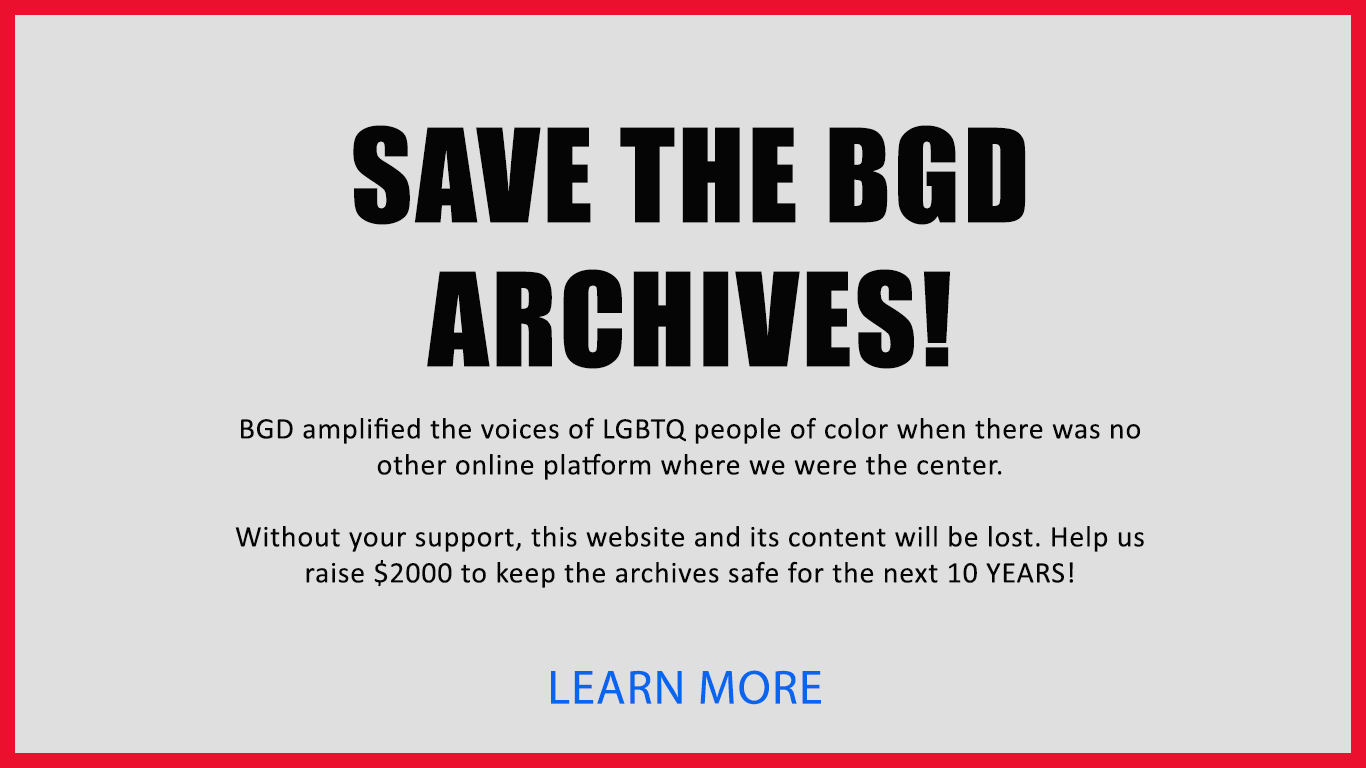by Trisha Williams

[Image description: A smiling Black man in a gray suit shakes the hand of a white man who is turned away from the camera.]
Fast forward a few weeks later. This same individual came to me gushing about an episode of Chelsea Handler’s docuseries on Netflix that I just HAD to watch, centering around race in America. She went on and on about how insightful it was and proceeded to rattle off talking points she learned from the show. Talking points that I had shared with her weeks earlier.
Was I in the Twilight Zone? Why had what I said fallen on deaf ears but when the same ideas were presented by Chelsea Handler, it was received as profound and revolutionary?
It was this, as well as countless other similar interactions — online and otherwise — that led me to the conclusion that experiences of racism articulated by a person of color is more often than not discounted. Acknowledgement of the possibility that inequality exists due to a white supremacist culture is received as an attack on an individual’s personal character and bias is assumed. However, coming from another white person, there is no perceived conflict of interest, and the idea of racism outside of slavery and Jim Crow seem more plausible.
For this reason, I propose that every person of color be assigned a white person to advocate for them for the purpose of clarity as well as for safety.
BGD is a reader-funded non-profit.
GIVE BACK and help amplify marginalized voices.
It is my personal belief that for white people, information disseminated by other white people is the number one catalyst for change. It’s a fact. Google it. After all, who better to tell you about yourself than someone you can easily identify with? This is something that has the potential to save so many lives. If we all had a white advocate on standby at all times, we would be less likely to be shot at by police, as they would not want to risk someone who they inherently have more empathy for getting caught in the crossfire. Being stopped by the police would no longer be a cause for anxiety for us. The police would be more likely to listen to reason and the threatening feeling they all seem to feel prior to executing us would be solved with basic conflict resolution tactics as opposed to bloodshed.
For those in your area who have the misfortune of being fatally injured during a police encounter sans white advocate, don’t bother protesting. Stay at home, relax. Let your white advocate be your stand-in. The group of concerned Americans comprised entirely of white people would be seen merely as citizens exercising their constitutional rights to assemble peacefully. The flagrant disregard that the criminal justice system has shown for black life will be sure to gain positive national attention with white faces in the forefront. There won’t be any confusion as to whether stating black lives matter means white lives do not because why would a group of white people imply that their own lives do not matter? A group of all white people taking a stand against state sanctioned execution at the hands of police would legitimize the movement in a way that would make not being in favor of accountability for law enforcement socially unacceptable.
Even casual racism would be a thing of the past. No longer would we feel the need to explain to workers how our hair seemingly grew 16 inches over the weekend. Or worry about how to react when asked about the definition of popular slang à la Issa Rae in Insecure. Your personal white advocate would drop knowledge on your curious white co-workers so thoroughly that it would be embraced as a white perspective and, therefore, information that is correct and widely accepted. Your well-meaning colleagues would never feel the need to subject this line of questioning to anyone else.
Tired of being followed around by retail store employees fearing you’re there to shoplift? White advocate can help. Are random white people at bars inappropriately asking you how to Milly Rock? Are you being compared to chocolatey confections by creepy racial fetishists? Well, white advocate can help with these sticky situations as well.
Best case scenario, the acceptance of a systemic problem existing in this country only by way of white advocacy may just illuminate how problematic needing a white person to act as a messenger for palpability truly is.
 Trisha Williams is a queer writer, mother and wife residing in Madison WI. Find more of her work at blackgirlwhitespace.wordpress.com
Trisha Williams is a queer writer, mother and wife residing in Madison WI. Find more of her work at blackgirlwhitespace.wordpress.com














